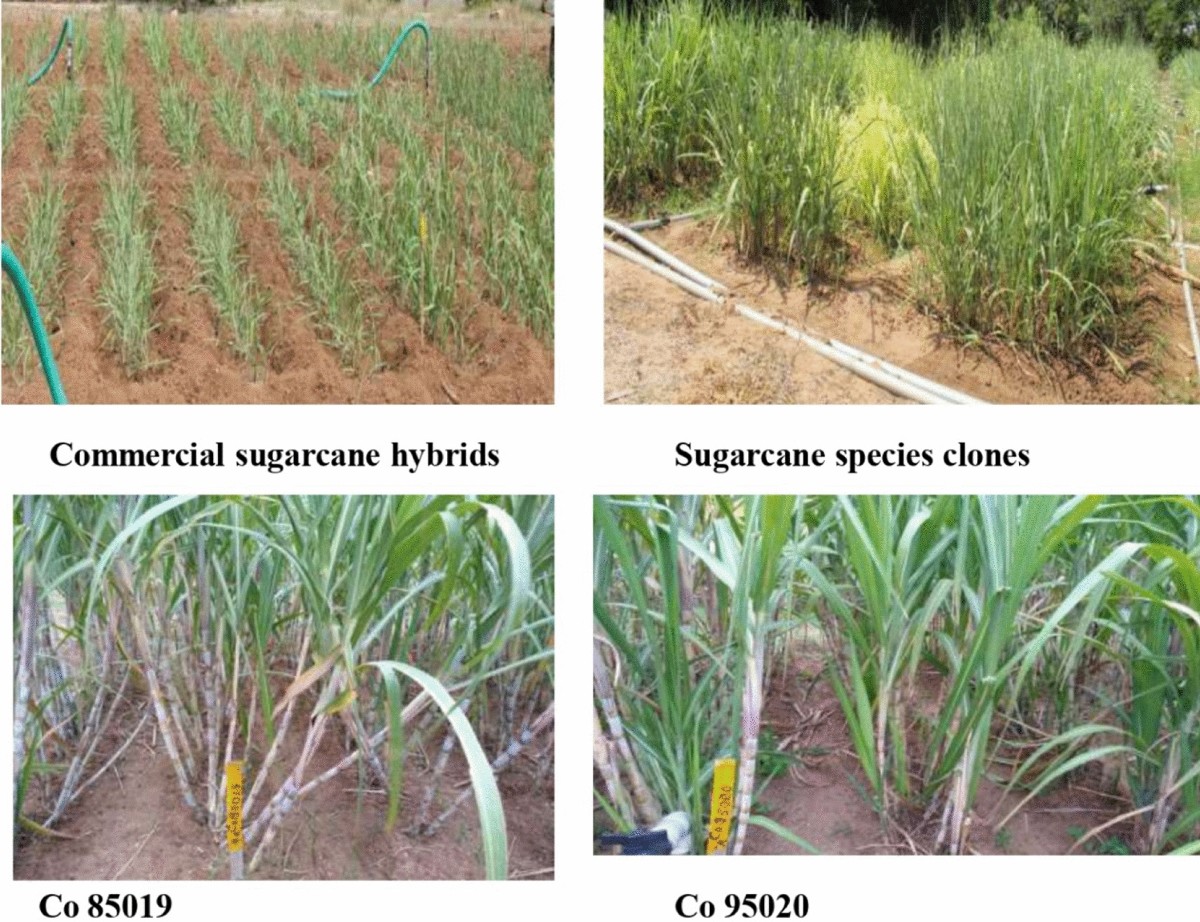Exploring Composting Options for Products From Sugarcane
Exploring Composting Options for Products From Sugarcane
Blog Article
Discover the Cutting-edge Advantages of Products From Sugarcane for Sustainable Living
Sugarcane has actually become a pivotal resource in the quest for sustainable living. Its diverse applications span biodegradable packaging, renewable resource, and healthier food options. As industries look for green choices, sugarcane's convenience uses appealing remedies. However, truth possibility of sugarcane prolongs beyond its existing usages. Discovering its innovative benefits might reveal new pathways towards an extra lasting future. What other possibilities might this amazing plant hold?

The Surge of Sugarcane as a Lasting Resource
As international understanding of ecological issues expands, sugarcane has become a famous lasting resource. This versatile plant offers a variety of benefits that add to green practices. Sugarcane is a renewable energy, with the ability of flourishing in diverse environments while soaking up carbon dioxide, therefore alleviating greenhouse gas exhausts. Its rapid development cycle permits constant harvesting, resulting in a continual supply of raw material.Additionally, sugarcane growing commonly needs much less water compared to other crops, making it an efficient alternative in water-scarce areas. The byproducts of sugarcane, such as bagasse and molasses, can be repurposed for various applications, reducing waste and promoting round economic climate principles. Developments in agricultural techniques have led to even more lasting farming methods, further enhancing sugarcane's ecological account. As customers increasingly seek lasting choices, sugarcane stands out as a feasible choice for those committed to reducing their ecological impact.
Biodegradable Packaging Solutions
How can biodegradable packaging solutions transform the way consumers approach sustainability? By making use of sugarcane-based products, these cutting-edge services offer an engaging option to typical plastics. Naturally degradable product packaging made from sugarcane decomposes normally, significantly minimizing garbage dump waste and greenhouse gas exhausts. As customers become increasingly conscious of their environmental influence, the demand for lasting packaging proceeds to rise.These sugarcane-derived products not only offer practical purposes but likewise straighten with eco-conscious consumer values. They provide a concrete means for individuals and businesses to contribute to a circular economy, promoting source effectiveness and decreasing ecological impacts. Additionally, as sectors adopt naturally degradable choices, they cultivate a culture of sustainability that reverberates with a growing demographic looking for accountable choices.In significance, naturally degradable packaging options from sugarcane represent a vital action forward in sustainable methods, empowering consumers to make eco-friendly decisions without giving up benefit or high quality.
Renewable Resource Generation From Sugarcane
A significant portion of eco-friendly power generation can be stemmed from sugarcane, showcasing its convenience past conventional agricultural usages. Sugarcane biomass, consisting of bagasse and leaves, is a powerful resource for bioenergy manufacturing. This biomass can be exchanged biofuels such as ethanol, which functions as a cleaner option to nonrenewable fuel sources. In addition, the combustion of sugarcane by-products creates vapor and electrical power, supplying an energy source for sugar mills and nearby communities.The farming of sugarcane additionally adds to carbon sequestration, as the plants take in carbon dioxide during their development cycle. By making use of sugarcane for energy, waste is decreased, and lasting methods are motivated. This eco-friendly power strategy not just supports energy demands but likewise promotes rural advancement, creating jobs in bioenergy sectors. In general, sugarcane stands out as a principal in the change to lasting power remedies, straightening with worldwide efforts to reduce carbon footprints.

Eco-Friendly Textiles and Fabrics
Environmentally friendly textiles and textiles stemmed from sugarcane offer an encouraging alternative to traditional products. These eco-friendly options not only minimize environmental impact yet additionally supply durability and efficiency comparable to standard fabrics. Lasting production procedures even more boost their allure, making them an essential component of a lasting lifestyle.
Naturally Degradable Textile Choices
Why is the adjustment toward eco-friendly fabric options essential for lasting living? The increasing recognition of environmental deterioration has actually prompted a search for choices to conventional textiles, which commonly add to air pollution and waste. Biodegradable materials, acquired from renewable energies such as sugarcane, offer an encouraging remedy. These products decompose normally, lowering garbage dump buildup and minimizing environmental influence. Additionally, they can assist reduced carbon impacts and reliance on fossil gas. As customers become more eco-conscious, the need for lasting textiles grows, encouraging producers to spend and innovate in naturally degradable alternatives. This change not only supports lasting practices however likewise fosters a circular economy, leading the way for a more responsible strategy to style and fabric manufacturing.
Longevity and Efficiency
When reviewing environmentally friendly fabrics and textiles, resilience and performance are important elements. Sugarcane-derived products show remarkable strength and resilience, making them suitable for different applications. These textiles frequently show premium moisture-wicking properties, which improve convenience in everyday wear. Furthermore, their all-natural fibers add to breathability, ensuring that garments continue to be wearable and fresh also in requiring conditions. The efficiency of sugarcane-based fabrics reaches their resistance to tear and use, permitting items to preserve their stability over time. Moreover, these eco-friendly textiles can be treated to enhance UV defense and tarnish resistance, meeting the practical requirements of customers without endangering sustainability. Inevitably, sugarcane fabrics supply an unified balance of durability and performance, attracting environmentally aware people.
Lasting Production Processes
The outstanding resilience and efficiency of sugarcane-derived fabrics are complemented by sustainable manufacturing procedures that focus on environmental duty. These processes utilize renewable energies, reducing dependence on nonrenewable fuel sources and decreasing carbon footprints. By using the by-products of sugarcane cultivation, producers can create eco-friendly materials while advertising waste reduction. Advanced techniques, such as water-efficient dyeing and naturally degradable therapies, further enhance the sustainability of these textiles. Additionally, making use of non-toxic chemicals assurances that the manufacturing procedure does not hurt ecological try these out communities or human wellness. This commitment to sustainability not just interest environmentally conscious customers but additionally sustains neighborhood economic situations by promoting sustainable agricultural techniques. Overall, sugarcane-derived fabrics stand for a considerable step towards a greener future in the apparel industry.
Sugarcane-Based Biofuels and Their Effect

Sugarcane-based biofuels have actually emerged as a substantial alternate energy resource, providing an eco-friendly remedy to the world's expanding power demands. These biofuels, acquired from the fermentation of sugarcane juice or molasses, offer an even more sustainable choice compared to nonrenewable fuel sources. Their manufacturing procedure produces lower greenhouse gas discharges, contributing to environment adjustment mitigation efforts.Additionally, sugarcane biofuels can improve energy protection by branching out power sources and lowering reliance on imported oil. The growing of sugarcane also advertises rural development, developing jobs and boosting local economies.However, concerns relating to land use and food competitors persist, as enhanced biofuel manufacturing may influence food supply chains. Lasting farming practices are important to balancing these contending interests and making sure that biofuel production does not weaken food security. Generally, sugarcane-based biofuels stand for a promising opportunity for a greener power future, gave that their environmental and social ramifications are meticulously taken care of.
Much Healthier Alternatives: Sugarcane in Food Products
While many consumers seek healthier options in their diet plans, sugarcane products provide a nourishing choice to improved sugars and fabricated sweeteners. Originated from the natural extraction of sugarcane juice, these products retain important nutrients, including vitamins and minerals, that are typically lost in processed sugars. Sugarcane contains anti-oxidants and nutritional fiber, adding to total health and wellness and wellness.Many health-conscious people are turning to sugarcane syrup and jaggery, which offer a lower glycemic index contrasted to standard sugars, making them appropriate for those managing blood sugar level degrees. In addition, sugarcane-derived sugar can improve the taste of various dishes without the negative impacts connected with artificial additives.This shift towards natural artificial sweetener not only advertises much better nutritional selections however likewise aligns with lasting living methods, as sugarcane is a renewable energy. Sugarcane items are emerging as desirable options in the domain of food items.
The Future of Sugarcane in Sustainable Technologies
The future of sugarcane is poised to encompass innovative applications that expand beyond typical uses. Its possible as a source for biodegradable product packaging options and renewable power sources highlights its function in sustainable methods. Exploring these advancements can significantly affect environmental preservation and resource monitoring.
Naturally Degradable Product Packaging Solutions
An enhancing variety of business are turning to eco-friendly packaging solutions acquired from sugarcane as an appealing alternative to typical plastics. These cutting-edge products, often made from sugarcane fibers and bioplastics, decay naturally, reducing the long-lasting environmental effect linked with standard plastic waste. By utilizing sustainable resources, sugarcane-based product packaging adds to a more sustainable production cycle, straightening with worldwide initiatives to battle pollution and environment adjustment. Additionally, these services commonly preserve the toughness and capability needed for different applications, from food containers to delivery products. As customer need for green alternatives grows, companies taking on sugarcane packaging not only enhance their brand look at here now image but also play a critical role in fostering a round economic climate, leading the way for a greener future.
Renewable Power Sources
Eco-friendly product packaging remedies are simply one element of the wider possibility of sugarcane in advertising sustainability. One more considerable application depends on renewable resource resources. Sugarcane is a functional crop that can be utilized to produce biofuels, such as ethanol, which offers as a cleaner alternative to fossil fuels. The fermentation procedure of sugarcane juice returns ethanol that can power automobiles and generate power. Additionally, the results of sugarcane handling, like bagasse, can be utilized to generate biomass power, using a reliable and sustainable approach to harness energy. This dual function as both a source of biofuel and biomass emphasizes sugarcane's capacity in decreasing carbon exhausts and sustaining a change to a much more lasting energy landscape in the future.
Frequently Asked Concerns
How Is Sugarcane Harvested Sustainably?
Sugarcane harvesting can be lasting through strategies like manual cutting, which decreases dirt interruption, and making use of machinery that reduces gas usage (Products From Sugarcane). Plant rotation and integrated pest administration better improve environmental wellness and promote long-lasting dirt fertility
What Are the Environmental Influences of Sugarcane Farming?

Can Sugarcane Products Be Recycled?
The question of whether sugarcane items can be recycled reveals a positive overview. Lots of sugarcane-derived products, such as bioplastics and product packaging, are created for recyclability, adding to an extra sustainable waste administration strategy within environmental factors to consider.
Are There Any Kind Of Drawbacks to Utilizing Sugarcane-Based Products?
The disadvantages of utilizing sugarcane-based products include prospective land use competitors with food crops, obstacles in large-scale production, and worries concerning the ecological effect of monoculture farming methods, which can decrease biodiversity and dirt wellness.
Just How Does Sugarcane Farming Affect Resident Communities?
Sugarcane cultivation impacts neighborhood areas by giving work chances and increasing local economic situations. It can additionally lead to land conflicts and environmental issues, impacting farming practices and community health, requiring a balanced technique to growth. Advancements in agricultural practices have led to more lasting farming methods, better enhancing sugarcane's ecological account. Furthermore, the burning of sugarcane by-products creates steam and power, supplying an energy resource for sugar mills and neighboring communities.The cultivation of sugarcane likewise contributes to carbon sequestration, as the plants soak up carbon dioxide during their development cycle. By making use of sugarcane visit site for energy, waste is lessened, and sustainable techniques are encouraged - Products From Sugarcane. Sugarcane includes antioxidants and dietary fiber, adding to general wellness and wellness.Many health-conscious individuals are turning to sugarcane syrup and jaggery, which supply a reduced glycemic index contrasted to conventional sugars, making them appropriate for those taking care of blood sugar levels. Furthermore, the results of sugarcane processing, like bagasse, can be made use of to generate biomass power, offering a efficient and lasting method to harness energy
Report this page